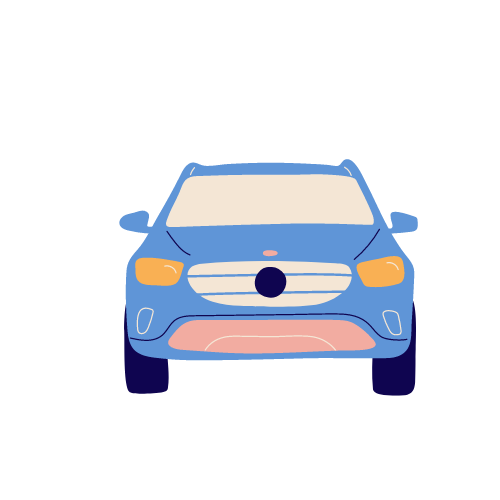
What is my neighbor paying for their 2000 Jeep Grand Cherokee?
Auto-Liability, 2000 Jeep Grand Cherokee
See a sample rate for a Female Driver / Single 48 year old with Violations & SR22 Insurance – liability only.
2000 Jeep Grand Cherokee: SAMPLE QUOTE
| Coverages and other Factors |
|---|
| Coverage Type: Liability Only |
| Number of Vehicles on Policy: 1 |
| Year/Make/Model: 2000 Jeep Grand Cherokee |
| Ownership Status: Own/Paid Off |
| Roadside/Towing: No |
| Rental Coverage: No |
| More Auto Coverage Details |
|---|
| Insurance Company: Progressive Insurance Company |
| Liability Limits: $25,000 each person / $50,000 each accident / $25,000 Property Damage |
| Uninsured Motorist: $25,000 / $50,000 |
| Underinsured Motorist: $25,000 / $50,000 |
| Personal Injury Protection: $15,000 |
| Comprehensive/Collison Deductible: None |
Insurance Rating Factors
State: Roseburg, Oregon
Gender: Female
Age Group: Late 40’s
Legal Marital Status: Single
Prior Insurance: Yes
Violations: Yes
SR-22: Required
Discounts Applied:
Disclaimer: The purpose of this page is to showcase an estimate of what insurance may cost an individual with these products and/or circumstances. This is based on a real quote.
What Is Personal Injury Protection In Auto Insurance?
Personal Injury Protection (PIP) is a type of auto insurance coverage that is designed to provide medical and sometimes other financial benefits to policyholders and their passengers in the event of an automobile accident, regardless of who was at fault for the accident. PIP is typically associated with no-fault insurance systems, which are in place in some states in the United States.
Here are some key features of Personal Injury Protection:
- No-Fault Coverage: PIP is often associated with no-fault insurance systems. In these systems, each driver’s own insurance company pays for their medical expenses and sometimes other related costs, such as lost wages, regardless of who caused the accident. This is in contrast to traditional liability insurance where the at-fault driver’s insurance typically covers the medical expenses of the other party.
- Coverage Benefits: PIP typically covers a range of expenses related to injuries sustained in an auto accident. These can include medical bills, rehabilitation costs, lost wages, and sometimes even funeral expenses and survivor benefits. The exact coverage can vary depending on the insurance policy and the state’s regulations.
- Pricing and Availability: PIP coverage is not available in all states, and where it is available, the rules and requirements can vary significantly. In some states, PIP coverage is mandatory, while in others, it is optional. The cost of PIP coverage can also vary depending on the state, your driving history, and other factors.
- Minimum Requirements: In states where PIP is mandatory, there are often minimum coverage limits that drivers must meet. These limits specify the maximum amount that PIP will pay out for various expenses.
- Coordination of Benefits: In no-fault states, PIP may work in conjunction with other insurance coverage. For example, if you have health insurance, your PIP coverage may pay for your medical expenses up to its limits, and then your health insurance would cover any remaining costs.
- Tort Thresholds: Some no-fault states have thresholds that determine when you can step outside of the no-fault system and sue the at-fault driver for additional damages. These thresholds are typically based on the severity of injuries or medical expenses.
It’s important to understand the specific PIP laws and regulations in your state if you live in a no-fault insurance state or are considering purchasing PIP coverage. Additionally, you should carefully review your auto insurance policy to understand the extent of PIP coverage it provides and any optional enhancements that may be available to you. PIP can be valuable in covering medical expenses and related costs after an accident, but it’s important to choose the right level of coverage for your needs and budget.
What Is Oregon’s Auto Insurance Requirements?
Oregon’s auto insurance requirements typically include liability insurance coverage. However, please note that insurance requirements can change over time, so it’s essential to verify the current requirements with the Oregon Department of Motor Vehicles (DMV) or your insurance provider. Here are the general auto insurance requirements in Oregon:
- Liability Insurance: Oregon requires all drivers to carry a minimum amount of liability insurance to cover bodily injury and property damage that you may cause to others in an accident. As of 2021, the minimum liability coverage limits are typically as follows:
- $25,000 for bodily injury or death per person.
- $50,000 for total bodily injury or death per accident.
- $20,000 for property damage per accident.
- Personal Injury Protection (PIP): Oregon is a no-fault insurance state, which means that Personal Injury Protection (PIP) coverage is typically required as part of your auto insurance policy. PIP helps cover medical expenses and other related costs for you and your passengers, regardless of who was at fault in an accident. The minimum PIP coverage requirements can vary, so check with your insurance provider for specific details.
- Uninsured and Underinsured Motorist Coverage: Oregon also requires that auto insurance policies include uninsured and underinsured motorist coverage, unless the insured person rejects this coverage in writing. This coverage helps protect you if you’re involved in an accident with a driver who doesn’t have insurance or has insufficient coverage.
- Additional Coverages: While liability, PIP, and uninsured/underinsured coverages are the minimum requirements, you can choose to purchase additional coverage types such as collision, comprehensive, and medical payments coverage for extra protection.
- Proof of Insurance: You must carry proof of insurance at all times when operating a vehicle in Oregon. Law enforcement may ask for proof of insurance during traffic stops or accidents, and you must be able to provide it.
What Is the Reputation of a 2000 Jeep Grand Cherokee?
The reputation of a 2000 Jeep Grand Cherokee can vary depending on individual experiences and how well the vehicle has been maintained over the years. Here are some key points to consider when it comes to the reputation of the 2000 Jeep Grand Cherokee:
1. Off-Road Capability: The 2000 Jeep Grand Cherokee is known for its off-road capability and is often praised for its ability to handle rugged terrain. Jeep has a long history of producing vehicles with strong off-road performance, and the Grand Cherokee is no exception.
2. Comfort and Interior: The 2000 Grand Cherokee received positive reviews for its comfortable interior and spacious cabin. It was often seen as a family-friendly SUV with ample cargo space.
3. Engine Options: The 2000 Grand Cherokee was available with a range of engine options, including a V6 and V8 engines. The V8 engines, in particular, were known for their power and towing capacity.
4. Reliability: While the 2000 Grand Cherokee had its strengths, it also had some reliability issues. Owners have reported problems with electrical components, transmission issues, and some engine-related concerns. These reliability issues can vary depending on maintenance and individual vehicle history.
5. Fuel Efficiency: One common criticism of the 2000 Grand Cherokee is its fuel efficiency. V8 models, in particular, tend to have lower gas mileage, which may be a concern for some buyers.
6. Safety: The 2000 Grand Cherokee received mixed safety ratings compared to more modern SUVs. It’s important to note that safety standards have evolved significantly since 2000, so if safety is a top priority, you may want to consider more recent models with advanced safety features.
7. Age and Maintenance: Keep in mind that a 2000 model is over two decades old as of 2023. The vehicle’s reputation can be heavily influenced by its maintenance history and overall condition. A well-maintained 2000 Grand Cherokee may still be a reliable and capable vehicle, but one that has been neglected or poorly maintained may have more issues.
Before purchasing a 2000 Jeep Grand Cherokee or any used vehicle of this age, it’s crucial to have a thorough inspection conducted by a qualified mechanic. Additionally, you should research the specific vehicle’s maintenance and repair history and consider whether it meets your needs and expectations. The reputation of a used vehicle can vary greatly based on its individual condition and history.
6-Month Premium:
Monthly Installments:
Curious to see what YOUR quote would be? Click here to fill out an online form to receive a estimate or give us a call at 888-445-2793. 
Need Some Proof? Check Out Some of Our Reviews!
INSURANCE SERVICES WE OFFER

Homeowners Insurance
Homeowners, renters, and mobile home owners: make sure you have the protection you need.




